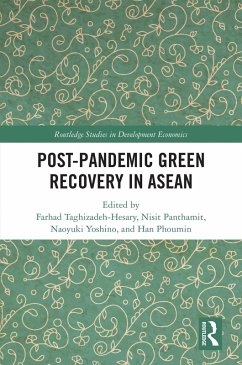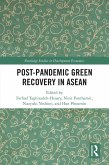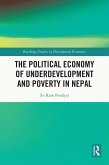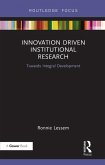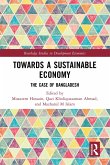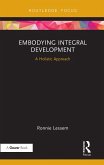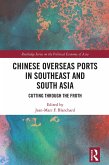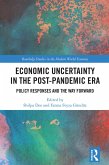Post-Pandemic Green Recovery in ASEAN (eBook, PDF)
Redaktion: Taghizadeh-Hesary, Farhad; Phoumin, Han; Panthamit, Nisit; Yoshino, Naoyuki
42,95 €
42,95 €
inkl. MwSt.
Sofort per Download lieferbar

21 °P sammeln
42,95 €
Als Download kaufen

42,95 €
inkl. MwSt.
Sofort per Download lieferbar

21 °P sammeln
Jetzt verschenken
Alle Infos zum eBook verschenken
42,95 €
inkl. MwSt.
Sofort per Download lieferbar
Alle Infos zum eBook verschenken

21 °P sammeln
Post-Pandemic Green Recovery in ASEAN (eBook, PDF)
Redaktion: Taghizadeh-Hesary, Farhad; Phoumin, Han; Panthamit, Nisit; Yoshino, Naoyuki
- Format: PDF
- Merkliste
- Auf die Merkliste
- Bewerten Bewerten
- Teilen
- Produkt teilen
- Produkterinnerung
- Produkterinnerung

Bitte loggen Sie sich zunächst in Ihr Kundenkonto ein oder registrieren Sie sich bei
bücher.de, um das eBook-Abo tolino select nutzen zu können.
Hier können Sie sich einloggen
Hier können Sie sich einloggen
Sie sind bereits eingeloggt. Klicken Sie auf 2. tolino select Abo, um fortzufahren.

Bitte loggen Sie sich zunächst in Ihr Kundenkonto ein oder registrieren Sie sich bei bücher.de, um das eBook-Abo tolino select nutzen zu können.
ASEAN's real gross domestic product (GDP) had declined sharply during the COVID-19 pandemic. This book offers insights into regional and country-level perspectives and ways to keep the greenness of the economic recovery plans.
- Geräte: PC
- mit Kopierschutz
- eBook Hilfe
Andere Kunden interessierten sich auch für
![Post-Pandemic Green Recovery in ASEAN (eBook, ePUB) Post-Pandemic Green Recovery in ASEAN (eBook, ePUB)]() Post-Pandemic Green Recovery in ASEAN (eBook, ePUB)42,95 €
Post-Pandemic Green Recovery in ASEAN (eBook, ePUB)42,95 €![The Political Economy of Underdevelopment and Poverty in Nepal (eBook, PDF) The Political Economy of Underdevelopment and Poverty in Nepal (eBook, PDF)]() Sri Ram PoudyalThe Political Economy of Underdevelopment and Poverty in Nepal (eBook, PDF)42,95 €
Sri Ram PoudyalThe Political Economy of Underdevelopment and Poverty in Nepal (eBook, PDF)42,95 €![Innovation Driven Institutional Research (eBook, PDF) Innovation Driven Institutional Research (eBook, PDF)]() Ronnie LessemInnovation Driven Institutional Research (eBook, PDF)23,95 €
Ronnie LessemInnovation Driven Institutional Research (eBook, PDF)23,95 €![Towards a Sustainable Economy (eBook, PDF) Towards a Sustainable Economy (eBook, PDF)]() Towards a Sustainable Economy (eBook, PDF)41,95 €
Towards a Sustainable Economy (eBook, PDF)41,95 €![Embodying Integral Development (eBook, PDF) Embodying Integral Development (eBook, PDF)]() Ronnie LessemEmbodying Integral Development (eBook, PDF)24,95 €
Ronnie LessemEmbodying Integral Development (eBook, PDF)24,95 €![Chinese Overseas Ports in Southeast and South Asia (eBook, PDF) Chinese Overseas Ports in Southeast and South Asia (eBook, PDF)]() Chinese Overseas Ports in Southeast and South Asia (eBook, PDF)44,95 €
Chinese Overseas Ports in Southeast and South Asia (eBook, PDF)44,95 €![Economic Uncertainty in the Post-Pandemic Era (eBook, PDF) Economic Uncertainty in the Post-Pandemic Era (eBook, PDF)]() Economic Uncertainty in the Post-Pandemic Era (eBook, PDF)44,95 €
Economic Uncertainty in the Post-Pandemic Era (eBook, PDF)44,95 €-
-
-
ASEAN's real gross domestic product (GDP) had declined sharply during the COVID-19 pandemic. This book offers insights into regional and country-level perspectives and ways to keep the greenness of the economic recovery plans.
Dieser Download kann aus rechtlichen Gründen nur mit Rechnungsadresse in A, B, BG, CY, CZ, D, DK, EW, E, FIN, F, GR, HR, H, IRL, I, LT, L, LR, M, NL, PL, P, R, S, SLO, SK ausgeliefert werden.
Produktdetails
- Produktdetails
- Verlag: Taylor & Francis eBooks
- Seitenzahl: 286
- Erscheinungstermin: 21. April 2023
- Englisch
- ISBN-13: 9781000873955
- Artikelnr.: 67512914
- Verlag: Taylor & Francis eBooks
- Seitenzahl: 286
- Erscheinungstermin: 21. April 2023
- Englisch
- ISBN-13: 9781000873955
- Artikelnr.: 67512914
- Herstellerkennzeichnung Die Herstellerinformationen sind derzeit nicht verfügbar.
Farhad Taghizadeh-Hesary is associate professor of economics at Tokai University in Japan. In addition, he is vice-president and co-founder of the International Society for Energy Transition Studies (ISETS). He is a recipient of the Excellent Young Researcher status from the Ministry of Education of Japan (MEXT). He is also a visiting professor at Keio University (Japan), the Technology Studies Institute (Iran), Chiang Mai University (Thailand), and a distinguished research fellow at the University of Economics Ho Chi Minh City (Vietnam). In 2022 he was listed on Clarivate's list of Highly Cited Researchers(TM) (World Top 0.1% of scientists). Currently, he serves as the editor-in-chief of the Journal of Environmental Assessment Policy and Management and as an associate editor/ board member of several scholarly journals. His research credits include authoring more than 250 academic journal papers and book chapters and editing 18 books published by Springer Nature, Routledge, World Scientific, and Asian Development Bank Institute. Dr Taghizadeh-Hesary holds a PhD in economics from Keio University with a scholarship from the government of Japan (MEXT). Nisit Panthamit is director of the Center of ASEAN Studies and associate professor of economics at the Faculty of Economics, Chiang Mai University in Thailand. He is also an academic advisory board member of the National Economic and Social Development Board for the National Strategy Plan 20-Years of Thailand. He has published on a wide range of topics, including international economics, ASEAN studies, and regional integration, in prestigious journals, including Finance Research Letters, Sustainability, Journal of Economic Integration, and Emerging Markets Finance and Trade. He earned a PhD in economics from the University of Wisconsin-Milwaukee, USA, in 2002 and an MA from Chiang Mai University, in 1994. He is coeditor of the book titled Poverty Reduction for Inclusive Sustainable Growth in Developing Asia (Springer, 2021). Naoyuki Yoshino is professor emeritus of Keio University in Tokyo, Japan, and director of the Financial Research Center (FSA Institute, Government of Japan). He obtained a PhD from Johns Hopkins University in 1979, where his thesis supervisor was Sir Alan Walters (the United Kingdom's former Prime Minister Margaret Thatcher's economic adviser). He worked as an assistant professor at the State University of New York at Buffalo, visiting scholar at the Massachusetts Institute of Technology (United States), visiting scholar at the Central Bank of Japan, and visiting professor at the University of New South Wales ( Australia), and Fondation Nationale des Sciences Politiques (France). He was the dean and CEO of the Asian Development Bank Institute in Tokyo (2014-2020). Dr Yoshino received honorary doctorates from the University of Gothenburg (Sweden) and Martin Luther University of Halle-Wittenberg (Germany). He was also conferred the Fukuzawa award from Keio University for his contribution to research. Han Phoumin is senior energy economist with the Economic Research Institute for ASEAN and East Asia. He has more than 20 years of experience working at various international and intergovernmental organizations and multidisciplinary research consortia related to the energy market and technologies, environment, integrated water resource management, governance, and economic development in the region of the Association of Southeast Asian Nations and East Asia. He specializes in economic development and policy and applied econometrics. Over the past ten years, much of his career has involved the power sector, incredibly sustainable hydropower development, renewable energy research, energy efficiency, clean coal technology, energy security, and energy demand and supply forecasting.
Introduction. Section 1: Theoretical Background and Thematic Studies 1.
Financing Small and Medium Enterprises for the Green Recovery in ASEAN 2.
Carbon tax and the green recovery: Policy Implications from a general
equilibrium model 3. Green Recovery of the Power Sector with Innovative
Power Purchase Agreements Section 2: Regional Studies and Country Studies
4. Green Finance Policies to Accelerate the Economy Recovery in ASEAN
Countries 5. An empirical assessment of ways to achieve a green economic
recovery in the Post-Pandemic in ASEAN 6. ASEAN's Green Recovery and the
Role of Green Stimulus in Job creation in a Post-COVID World 7. Role of
green infrastructure in facilitating trade recovery in ASEAN 8. The
Perspective and Recommendations for the Green Recovery of the Tourism
Sector in Thailand 9. The Post Pandemic Green Economic Recovery,
Livelihoods, and Adaptations in ASEAN 10. Exploring the Gastronomic Driving
Factors of Tourism Demand to Foster the Green Economic Recovery in the
Post-Pandemic 11. The Potential and Challenges of the Green Sukuk for
Financing the Green Economic Recovery in Indonesia.
Financing Small and Medium Enterprises for the Green Recovery in ASEAN 2.
Carbon tax and the green recovery: Policy Implications from a general
equilibrium model 3. Green Recovery of the Power Sector with Innovative
Power Purchase Agreements Section 2: Regional Studies and Country Studies
4. Green Finance Policies to Accelerate the Economy Recovery in ASEAN
Countries 5. An empirical assessment of ways to achieve a green economic
recovery in the Post-Pandemic in ASEAN 6. ASEAN's Green Recovery and the
Role of Green Stimulus in Job creation in a Post-COVID World 7. Role of
green infrastructure in facilitating trade recovery in ASEAN 8. The
Perspective and Recommendations for the Green Recovery of the Tourism
Sector in Thailand 9. The Post Pandemic Green Economic Recovery,
Livelihoods, and Adaptations in ASEAN 10. Exploring the Gastronomic Driving
Factors of Tourism Demand to Foster the Green Economic Recovery in the
Post-Pandemic 11. The Potential and Challenges of the Green Sukuk for
Financing the Green Economic Recovery in Indonesia.
Introduction. Section 1: Theoretical Background and Thematic Studies 1.
Financing Small and Medium Enterprises for the Green Recovery in ASEAN 2.
Carbon tax and the green recovery: Policy Implications from a general
equilibrium model 3. Green Recovery of the Power Sector with Innovative
Power Purchase Agreements Section 2: Regional Studies and Country Studies
4. Green Finance Policies to Accelerate the Economy Recovery in ASEAN
Countries 5. An empirical assessment of ways to achieve a green economic
recovery in the Post-Pandemic in ASEAN 6. ASEAN's Green Recovery and the
Role of Green Stimulus in Job creation in a Post-COVID World 7. Role of
green infrastructure in facilitating trade recovery in ASEAN 8. The
Perspective and Recommendations for the Green Recovery of the Tourism
Sector in Thailand 9. The Post Pandemic Green Economic Recovery,
Livelihoods, and Adaptations in ASEAN 10. Exploring the Gastronomic Driving
Factors of Tourism Demand to Foster the Green Economic Recovery in the
Post-Pandemic 11. The Potential and Challenges of the Green Sukuk for
Financing the Green Economic Recovery in Indonesia.
Financing Small and Medium Enterprises for the Green Recovery in ASEAN 2.
Carbon tax and the green recovery: Policy Implications from a general
equilibrium model 3. Green Recovery of the Power Sector with Innovative
Power Purchase Agreements Section 2: Regional Studies and Country Studies
4. Green Finance Policies to Accelerate the Economy Recovery in ASEAN
Countries 5. An empirical assessment of ways to achieve a green economic
recovery in the Post-Pandemic in ASEAN 6. ASEAN's Green Recovery and the
Role of Green Stimulus in Job creation in a Post-COVID World 7. Role of
green infrastructure in facilitating trade recovery in ASEAN 8. The
Perspective and Recommendations for the Green Recovery of the Tourism
Sector in Thailand 9. The Post Pandemic Green Economic Recovery,
Livelihoods, and Adaptations in ASEAN 10. Exploring the Gastronomic Driving
Factors of Tourism Demand to Foster the Green Economic Recovery in the
Post-Pandemic 11. The Potential and Challenges of the Green Sukuk for
Financing the Green Economic Recovery in Indonesia.
